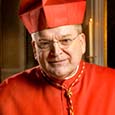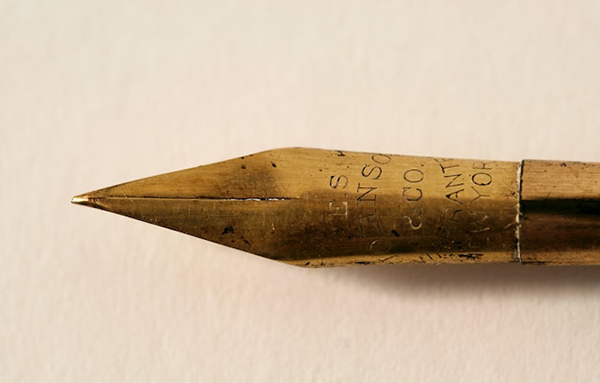Discipline and Doctrine: Law in the Service of Truth and Love (Part I)
- CARDINAL RAYMOND BURKE
In the period immediately preceding the Second Vatican Ecumenical Council and, even more so, in the post-Conciliar period, the Church's canonical discipline was called into question at its very foundations.
The Role of Canon Law
In the period immediately preceding the Second Vatican Ecumenical Council and, even more so, in the post-Conciliar period, the Church's canonical discipline was called into question at its very foundations. The crisis of canon law had its origin in the same philosophical presuppositions which were inspiring a moral and cultural revolution in which the natural law, the moral ethos of individual life and life in society, was questioned in favor of an historical approach in which the nature of man and nature itself no longer enjoyed any substantial identity but only a changing, and sometimes naively-considered progressive, identity.
Within the Church, the reform of the 1917 Code of Canon Law, announced by Pope Saint John XXIII, a reform which did not begin in earnest until some 10 years later and then slowly progressed during the last years of the Pontificate of Pope Saint Paul VI and the first years of the Pontificate of Pope Saint John Paul II, seemed to question the need of canonical discipline and opened a forum for certain theologians and canonists to question the very foundations of law in the Church. The so-called "Spirit of Vatican II," which was a political movement divorced from the perennial teaching and discipline of the Church, exacerbated the situation greatly. After a period of intense labors and heated discussions, Pope Saint John Paul II promulgated the revised Code of Canon Law on January 25, 1983, some twenty-four years after it had been announced.
During the lengthy pontificate of Pope Saint John Paul II, great progress was made in renewing the respect for canonical discipline which, as he explained in promulgating the 1983 Code, has its earliest roots in the outpouring of the Holy Spirit into the hearts of men from the glorious pierced Heart of Jesus.1
In promulgating the Code of Canon Law, Pope John Paul II recalled the essential service of canonical discipline to the holiness of life, the renewed life in Christ, which the Second Vatican Ecumenical Council wished to foster. He wrote:
I must recognize that this Code derives from one and the same intention, the renewal of Christian living. From such an intention, in fact, the entire work of the council drew its norms and its direction.2
These words point to the essential service of canon law in the work of a new evangelization, that is, the living of our life in Christ with the engagement and energy of the first disciples. Canonical discipline is directed to the pursuit, at all times, of holiness of life.
The saintly Pontiff then described the nature of canon law, indicating its organic development from God's first covenant with His holy people. He recalled "the distant patrimony of law contained in the books of the Old and New Testament from which is derived the whole juridical-legislative tradition of the Church, as from its first source."3 In particular, he reminded the Church how Christ Himself, in the Sermon on the Mount, declared that he had not come to abolish the law but to bring it to completion, teaching us that it is, in fact, the discipline of the law which opens the way to freedom in loving God and our neighbor.4 He observed: "Thus the writings of the New Testament enable us to understand even better the importance of discipline and make us see better how it is more closely connected with the saving character of the evangelical message itself."5
The labors of Pope Saint John Paul II have borne remarkable fruit for the restoration of the good order of ecclesial life which is the irreplaceable condition for the growth in holiness of life. As a canonist, I note, in various parts of the ecclesial world, more and more initiatives, perhaps small but nonetheless strong, to foster the knowledge and practice of the Church's discipline, in accord with the true post-Conciliar reform, that is, in continuity with the perennial discipline of the Church.
Today, we are sadly witnessing a return to the turmoil of the post-Conciliar period. In the past few years, law and even doctrine itself have been repeatedly called into question as a deterrent to the effective pastoral care of the faithful. Much of the turmoil is associated with a certain populist rhetoric about the Church, including her discipline.
New canonical legislation has also been promulgated which is clearly outside of the canonical tradition and, in a confused manner, calls into question that tradition as it has faithfully served the truth of the faith with love. I refer, for example, to legislative acts touching upon the delicate process of the declaration of nullity of marriage which, in turn, touches upon the very foundation of our life in the Church and in society: marriage and the family.
Given the situation in which the Church finds herself, it seems especially important that we be able to give an account of the irreplaceable service of the law in the Church, as also in society. It is especially important that we be able to recognize and correct rhetoric which is confusing and even leading into error a good number of the faithful.
To that end, I address the essential and irreplaceable relationship of doctrine and law with the pastoral life of the Church, that is, with the daily reality of Christian living. First, I will address the pervasive populist rhetoric about the Church and her institutions. Then, I will present a key teaching in the matter, namely the address to the Roman Rota of Pope Saint John Paul II on January 18, 1990.
✠
1. See Canon Law Society of America, Code of Canon Law: Latin-English Edition, New English Translation, Washington, D.C.: Canon Law Society of America, 1998, p. xxvii. [Hereafter, CCL-1983].
2. CCL-1983, p. xxviii.
3. CCL-1983, p. xxix.
4. Cf. Mt 5:17–20.
5. CCL-1983, p. xxix.
 This is Fraser Field, Founder of CERC. I hope you appreciated this piece. We curate these articles especially for believers like you.
This is Fraser Field, Founder of CERC. I hope you appreciated this piece. We curate these articles especially for believers like you.
Please show your appreciation by making a $3 donation. CERC is entirely reader supported.

Acknowledgement
 Cardinal Raymond Burke. "Discipline and Doctrine: Law in the Service of Truth and Love (Part I)." cardinalburke.com (May 9, 2023).
Cardinal Raymond Burke. "Discipline and Doctrine: Law in the Service of Truth and Love (Part I)." cardinalburke.com (May 9, 2023).
Reprinted with permission from the author.
The Author
Raymond Leo Cardinal Burke is an American Cardinal Prelate of the Roman Catholic Church.
Copyright © 2023 Cardinal Raymond Burke


